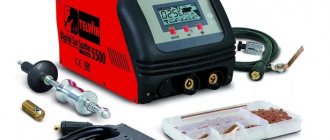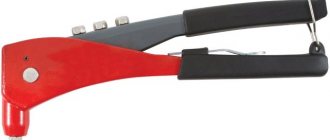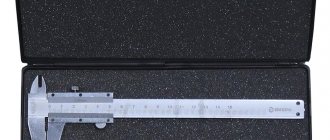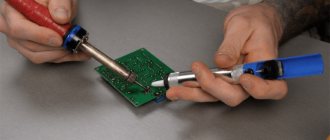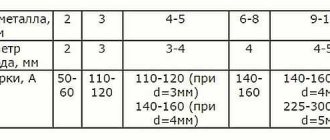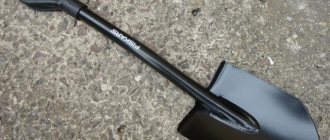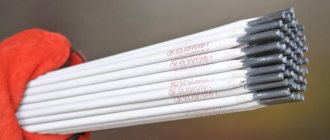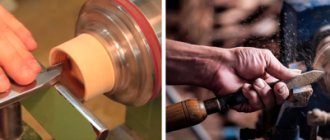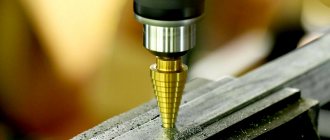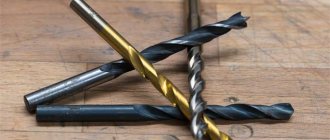In the auto body repair business, fixing dents is an everyday activity.
From the moment it became clear that such a defect was easier to eliminate by pulling the metal outward, a special device appeared, called a spotter.
Its use reduces the time it takes to restore the shape of sheet metal, and therefore the usefulness and efficiency of such equipment in a body shop remains at the highest level.
It is interesting that this name refers to any resistance welding machine, but only in the CIS countries spot welding machines designed specifically for restoring a car body are called spotters.
Purpose of the spotter
A spotter is a resistance spot welding machine that is used in the restoration of vehicle body panels.
In general, the principle of operation, like many other welders, is the release of thermal energy at the point of contact of the materials being welded due to the passage of current.
Body repair is the main purpose of the spotter.
This is especially true for volumetric parts that are difficult or impossible to get to from the reverse side.
In this case, the device allows you to straighten the material without the need to dismantle the entire part from the car, that is, right on the spot.
Here, the so-called pulling method is used, when a fastening element is welded to the damaged plane, using which the dent is pulled out.
Body panels, as a rule, are made up to 1.5 mm thick, so straightening them by stretching does not cause problems.
Some spotters are used to heat sheet metal, which allows the damage to be repaired very quickly without resorting to pulling, when the material settles on its own without any mechanical force.
Purpose and scope of equipment
Spotters are standard equipment for car repair shops, as their use significantly saves time and reduces labor costs when straightening body parts with one-way access.
In addition, they are used for upsetting metal by pulse heating. Another area of application for spotters is double-sided welding. In this case, instead of a gun, special welding pliers are used. One of the important features of this welding equipment is low power consumption; The PV parameter (on duration) for such devices does not exceed 5%. Many home craftsmen involved in car body repairs make their own spotters from scrap materials (mostly based on old transformers). In such devices, most often there is no electronic control unit, and the welding pulse is generated manually by pressing the power off button. As a rule, they also do not have current adjustment, so the selection of welding modes is done experimentally. Craftsmen usually make pistols and reverse hammers with their own hands, and purchase consumable fasteners in specialized stores. Nevertheless, with the help of such devices, various types of straightening are quite successfully performed.
Device and characteristics
The spotter consists of a welder module for resistance welding, and this can be an option for both direct and alternating current.
Adjacent to this block is a ground wire and a cable ending with a special welding gun.
At the end of the latter, depending on the specifics of the work, various attachments are attached.
On the front panel of the welder there are controls for setting various welding modes, power, current, and advanced units also have a display that displays real operating parameters, allowing you to fine-tune the equipment and monitor the progress of the process.
The work of the spotter looks like this:
- The battery is removed from the car.
- The ground wire is fixed to the body.
- The gun with the nozzle is brought to the repair area.
- The electrical circuit is completed by pressing the trigger, which results in the flow of current.
- At the point of contact of the nozzle with the body, the temperature rises until the electrode is welded to the metal, but this prevents overheating of the part and its through burning.
- The next step is to pull out the dent.
Material
The contents of modern spotters are hidden in a body made of sheet metal or aluminum; sometimes individual elements made entirely of impact-resistant plastic are used, such as the back cover and carrying handle.
The front panel is metal; adjustment knobs can also be made of metal or plastic.
Legs with rubber pads are attached to the bottom of the welder, which increases its stability.
Visually, the device strongly resembles a welding inverter.
NOTE:
For ease of movement around the workshop, some models are assembled on the basis of a vertical metal cart with wheels.
Dimensions and weight
Depending on the design, the weight of the spotter can vary widely.
Portable options weigh on average 14 - 25 kg, and models assembled on a trolley can weigh up to 90 - 100 kg.
As a rule, the dimensions of the spotter are within the following limits:
- for portable options (mm) – 210 – 390x 260 – 360 x 155 – 240
- for models with a trolley (mm) – 1000 – 1800 x 500 – 600 x 700 – 950
Operating modes and power
Modern spotters are equipped with electronic control, which allows you to simply select from the available operating modes and set the required contact time, after which the device will automatically stop supplying voltage to the gun.
The operating modes of the device are numbered and additionally indicated by corresponding icons.
The following main operating modes are distinguished:
- Welding is performed with a reverse hammer or puller, and the mode itself is designed to remove dents of small diameter and shallow depth.
Considering that such damage occurs extremely often, it is in this mode that a greater amount of work is performed, especially since modern materials from which car bodies are made easily return to their original shape due to elasticity. - Using special electrodes, any pulling element is welded to the metal. Due to this, it is possible to correct significant defects, for example, restore jammed ribs and thresholds.
- A short-length copper-plated electrode is used, which is used to deposit convexities formed, for example, by a ground terminal.
- Used to heat a decent surface area using a carbon electrode. If you pull out a large damaged surface, a so-called “pop” is formed, which in this mode is eliminated due to the deposition of metal.
- During the repair process, it is often necessary to remove fastenings, for example, moldings. Upon completion of the work, they must be welded, for which copper-plated electrodes are used.
- The mode is suitable for pulling out metal with hooks and rings using a reverse type hammer weighing 2.5 kg, but its main purpose is welding the washer for securing the ground terminal.
- A copper-plated electrode with a magnet is used, through which the welded bolt is held. It is used for welding bolts, installing ground terminals, and brake pipes.
One of the main characteristics of a spotter is its power.
We are talking about the output current, the maximum value of which should ideally not be lower than 3 thousand amperes.
Different tasks require their own current strength:
- Welding rings and triangles – 800 – 1000 A.
- Welding corrugated wire – 1 – 1.2 thousand A.
- Work with a copper electrode - 1.4 thousand A.
- Working with a graphite electrode to heat the surface - 2.2 thousand A.
Spotter attachments
The spotter works using the following main accessories:
- The return hammer is a removable part of the gun, for the operation of which various tips are used.
- Puller - designed for express extraction, that is, it allows you to correct minor damage by smoothly leveling the surface. Structurally, it consists of a lever mechanism.
Dents can be pulled out using a needle or star attachment, which is inserted into a reverse hammer and directly welded to the part.
A hook is also often used, but it is not welded directly, but hooked onto previously welded washers.
Types of spotters and their prices
By design, a spot welding machine can only belong to one of two groups:
Inverter
Thanks to the converter, which allows you to receive energy from any voltage, these models are used to perform multitasking work.
They have compact dimensions and provide high quality welding, since there is no drop in current during operation.
Price – from 25 thousand rubles.
Transformer
Powered by AC power, designed to perform simple operations.
The most extensive capabilities here are provided by models operating from three phases of power supply, due to their increased power.
Among the disadvantages, it should be noted that such models are not able to work with galvanized surfaces.
Price – about 15 thousand rubles.
Some craftsmen use the so-called battery spotter, which consists directly of a battery and a retractor relay.
This homemade device will cost much less than the factory versions of any plan; it does not require a network connection when operating, but naturally has serious disadvantages:
- Short operating time, need to charge the battery.
- No time relay.
- Lack of ability to adjust basic operating parameters, such as current.
Devices for resistance spot welding can be divided into 2 more groups, depending on the type of material they can work with:
For steel
Designed for straightening conventional steel bodies.
For aluminum
They are used for straightening aluminum parts, since aluminum has completely different properties.
Multifunctional
In terms of the number of types of work performed, there are truly multifunctional spotters capable of not only leveling surfaces, but also performing spot welding, as well as soldering metal with carbon electrodes.
By the way, a welding spotter, based on the method of forming a welding point, can be:
- For single-sided spot welding using a special electrode.
- For double-sided spot welding with special pliers with manual or pneumatic drive.
Mini spotter
In addition to full-fledged welding installations weighing more than 10 kg, you can find on sale a mini-spotter for one-sided welding and leveling surfaces with a maximum welding current of about 1.5 thousand amperes and weighing only 4 - 5 kg.
Such portable options are supplied in convenient cases, comparable in size to a pistol-type soldering iron, and their average cost is 20 - 40 thousand rubles.
Rating of spot welding machines
The adhesion of the materials is ensured by a seam consisting of many small welded points. To create them, the part is placed between two electrodes; they compress it from below and from above, while simultaneously passing current. There are two types of welding machines - portable and stationary. We conducted research on several dozen devices, evaluating each on a number of indicators:
- Category – household, industrial, professional;
- Type – pliers, portable apparatus, stationary machine;
- Welding method – single-sided, double-sided, combined version;
- Current – maximum indicator, equipment capabilities from 3000 to 10,000 A;
- Speed of work - how many hitch points are left per minute;
- Permissible thickness of materials - which sheets can be overlapped;
- Voltage – single-phase 220 V, three-phase 380 V;
- Control - ease of use, manual, synergistic (microprocessor) setting;
- Noise level – sound pressure in dB during active mode;
- Power – the parameter is measured in kW, the higher it is, the thicker the surface;
- Additional options – cooling system, equipment.
The demand for such devices has been growing over the years. Manufacturers are improving their products, adding new products to the market. We have selected products that have received the highest ratings from experts and the most favorable reviews from customers and ordinary owners. As a result, 7 nominees were identified - 4 ticks, 3 spotters.
The best masks for welders
Which spotter should you choose?
When choosing a device for body repair, you need to focus on the following tips:
- For professional activities, it is better to immediately buy a spotter with maximum functionality and a wide selection of operating modes. Such equipment will allow you to perform most of the straightening work using one model.
- To work with metal whose thickness exceeds 1.5 mm, you will need a model capable of welding on both sides. If the thickness of the body elements is less than 1.5 mm, a one-sided spotter will cope with the task.
- When choosing a model for home, there is no point in buying professional equipment with a full set of straightening devices. At first, a medium-power device will be suitable, with which you can perform simple work, such as leveling dents on flat surfaces.
- Transformer models have higher efficiency and power, however, they also consume much more energy than converter options. The former are suitable for systematic work, and the latter for periodic work.
When choosing a spotter, it is better to give preference to digital models, the design of which includes electronics that can independently control welding modes and automatically dose the welding pulse.
Which spot welding machine is better?
The welding machine must be reliable, productive, and as accurate as possible in performing its functions. All presented nominees meet these parameters, reviews confirm this. The recommendations of Vyborexperta.ru will tell you what to choose and buy based on a comparative analysis of the pros and cons of each position:
- Caliber SVA-1.5 AK is a budget compact model of Russian-made pliers;
- Telwin Digital Modular 230 – device with a timer for high-strength steel sheets;
- Blueweld Plus 230 – high power, left-handed/right-handed model, microcontroller;
- Fubag TS 2600 – compact spotter with 5 operating modes, light indication;
- TCC SW-1600 is the highest indicator of accuracy, speed, and efficiency.
The choice of such a welding device should be approached with complete seriousness. In order for the costs to be justified, all factors are taken into account in advance. Conventionally, the nominees can be divided into household and professional designs. Much depends on the frequency of use, level of load, personal needs, and which products will be repaired.
What you need to know about spotters?
The quality of work as a spotter directly depends on the experience of the operator. Following several rules will protect the master from troubles:
- Work comfort can be ensured by clearing the cleaned area of the body from dust, as otherwise a large number of sparks may form. As a result, tip consumption increases.
- The ground terminal should be installed at the minimum possible distance from the welding point.
Attention!
Do not fix the ground terminal to an adjacent part.
- During work, it is necessary to monitor the quality of contact of the mass and at the point of attachment of the tool. If the contact is poor, this will certainly lead to breakage of the tool attachment point, as well as breakdown.
- It is necessary to pull the material on the damaged area in a spiral, moving from the periphery to the center. This method will save time, as it will eliminate excessive stretching of the material and the appearance of dips around the center of the dent.
Important!
The device should be connected to the outlet using wiring with a cross-section of at least 2.5 sq. mm.
If you plan to use an extension cord, then the cable cross-section should be higher based on the length.
Spotter manufacturers
Among the companies engaged in the production of spotters, the leading ones are:
- Garwin GS series – popular among body repair specialists, they are equipped with a set of additional tools and have an affordable price.
- Hammer TT series are French devices with microprocessor control and increased safety. Cheaper than the previous ones, but also have less power.
- Karcher – devices on Kraft trolleys with pullers. Due to their high cost, their operation is justified only in workshop services.
Models from Aurora, Telwin, Nordberg, Holex, and Russian Master also deserve attention.
